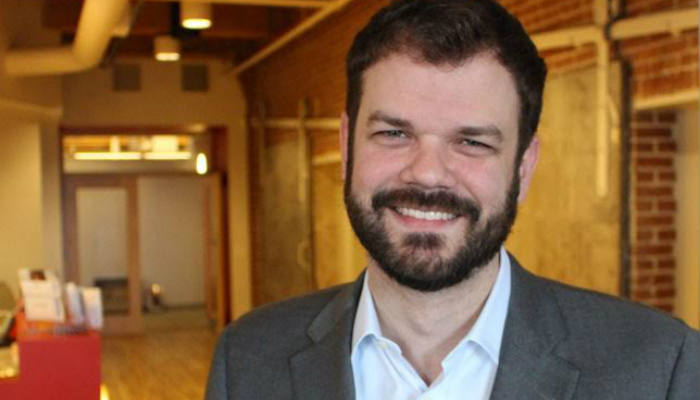
Juristat is using big data to predict the future… at least for your patent application.
The Software as a Service (SaaS) company allows users to plot their chance of success in all aspects of the patent application process. Among the many features, Juristat can tell an attorney the number of allowed (approved), pending and abandoned patent applications in front of a current examiner, the likelihood of your application getting allowed and your chances of success in an appeals.
The information provided has all been gathered by sifting through public records data of patent cases in the United States.
Moneyball for patent lawyers
CEO and co-founder Drew Winship calls Juristat the “Moneyball for patent lawyers.” This Billy Beane of patent law graduated Washington University in St. Louis School of Law in 2009 and was a practicing attorney for several years. It was in those years that Winship realized the need for more quantitative solutions for attorneys.
“With all the clients that I work with, they wanted to have some sort of mathematical odds,” he said. “They wanted to understand how likely their patent application would be approved. They wanted to know how likely they were to succeed in the appeals process.”
But the idea for Juristat actually came in early 2012 at a St. Louis Startup Weekend event. At the contest, people break off into teams to devise viable startups in a 54-hour timeframe. It was there that Winship met his co-founders, Jordan Woerndle and Robert Ward.
“When people think about disruption, they often view it as a negative thing where jobs are destroyed”
The team won the contest, hauling in a $50,000 grand prize. It has grown immensely since its inception just a few years ago. To date, the company has raised almost $2 million and has 15 full-time employees.
Current clients of Juristat are all lawyers in some capacity and include Fortune 500 legal departments and their big law firms of record right down to the solo practioner. Winship said that when the firm first started, the product was marketed to medium-sized firms in regional markets. He said that arming these firms with Juristat’s software gave larger firms the incentive to compete and also put his product on the map for small firms and solo attorneys.
Will Juristat replace lawyers?
But can legal technology end up eliminating the need for some of these lawyers in the first place? This is a pertinent question, given that the legal industry is going through profound, structural changes. Contract attorneys and discovery software are diminishing the need for high-paid associates at large law firms. Technology such as Legal Zoom are taking away the need for attorneys to perform simple tasks such as will writing.
Fortunately for current or aspiring practioners, Winship said Juristat is about helping lawyers rather than taking jobs away.
“When people think about disruption, they often view it as a negative thing where jobs are destroyed,” Winship said. “That isn’t what we’re doing here. We’re helping lawyers by taking away a lot of the non-billable tasks that have to get completed so they can focus on the more exciting, more legal aspects of their job.”
For now, the company plans to continue improving its service for patent attorneys. He said a lot of legal technology startups decide to go too broad and find themselves struggling to differentiate.
“We didn’t want to go down that path,” Winship said. “Eventually, if we find that growth is slowing, we’ll consider looking into other markets. But for now, we want to focus on one thing, and we’re going to do it better than anyone else.”




